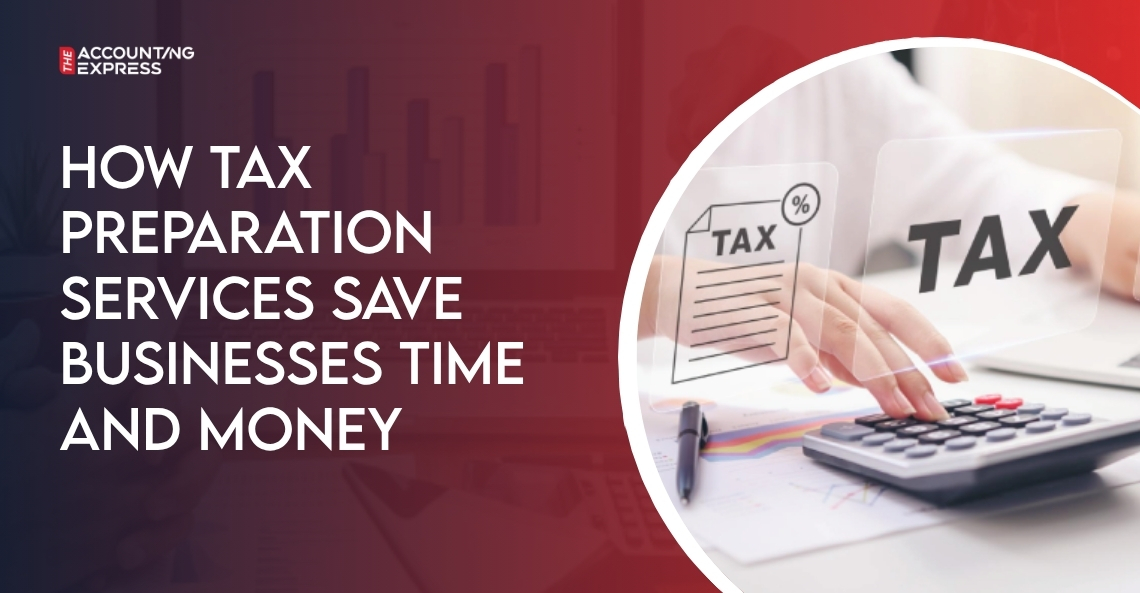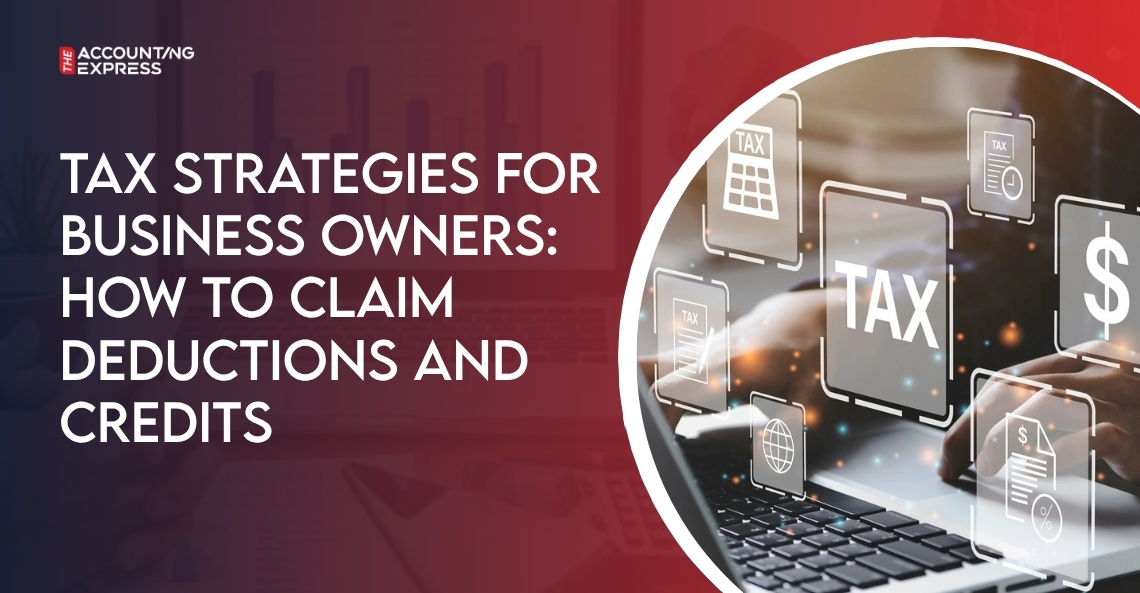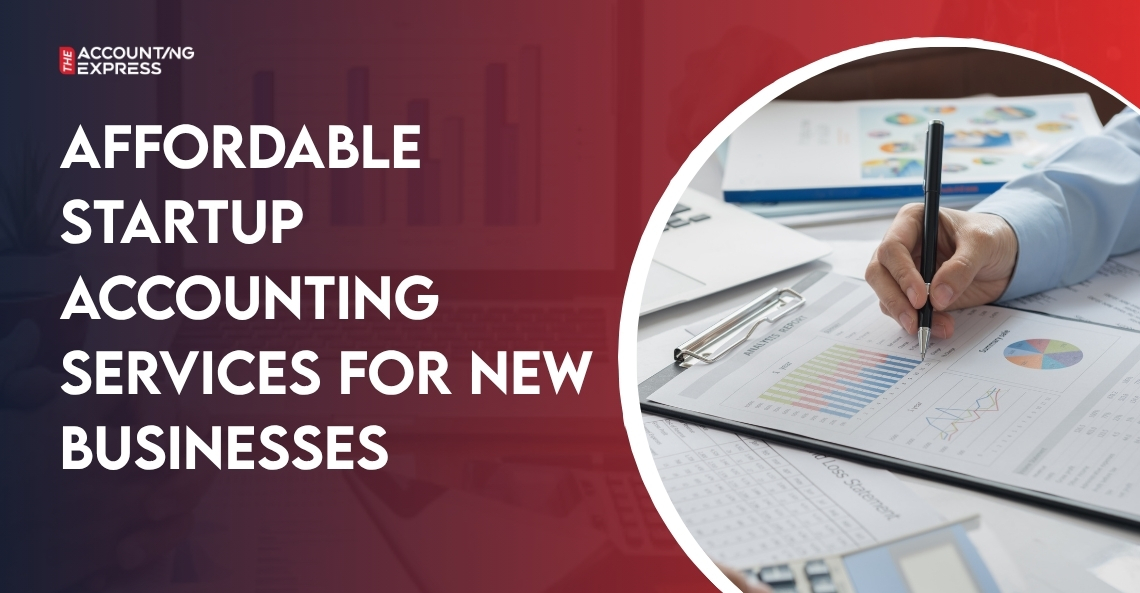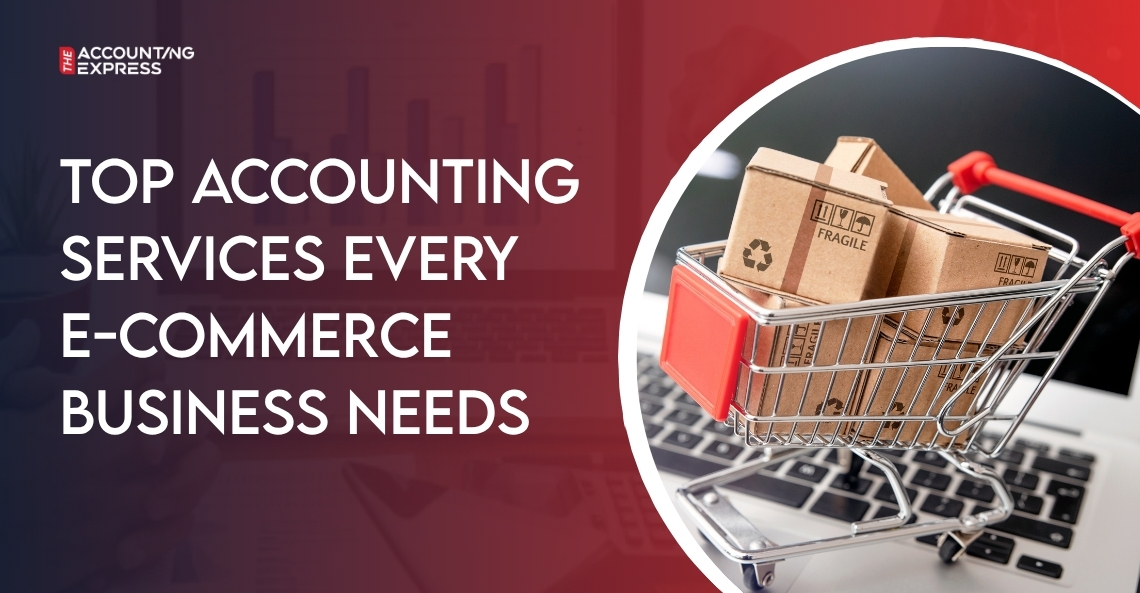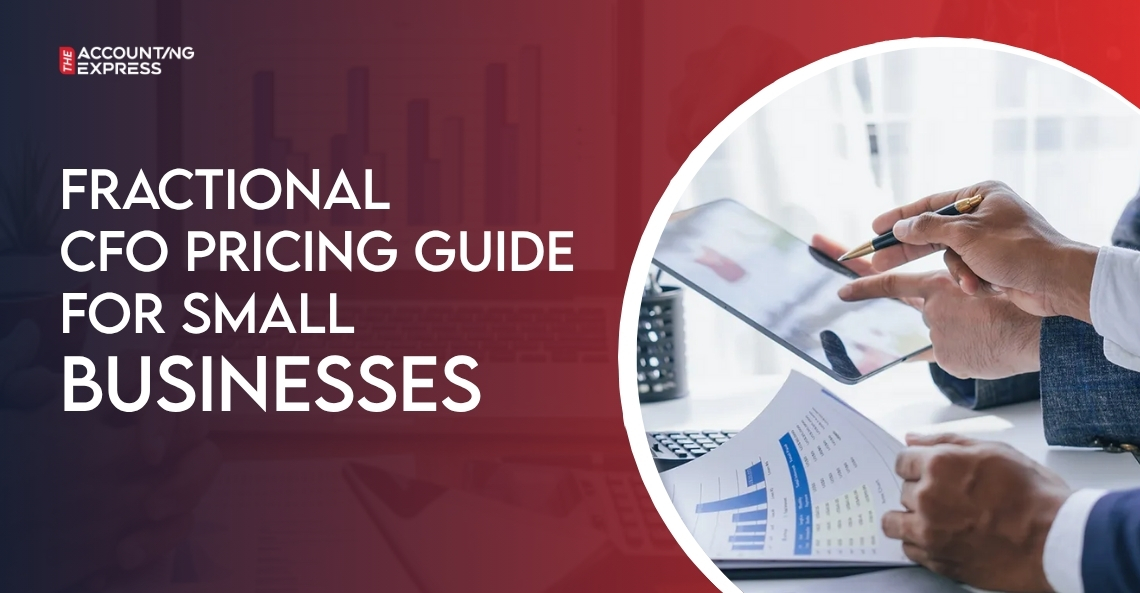
Fractional CFO Pricing Guide for Small Businesses
Hiring a Fractional CFO has become one of the smartest moves for growing startups and small companies. It gives business owners the same financial expertise as a full-time CFO without the heavy salary.
At The Accounting Express, our team provides professional fractional CFO services that help small businesses plan, forecast, and manage finances effectively. This guide explains what you can expect to pay, what affects CFO pricing, and how to choose the right option for your business.
What Is a Fractional CFO
A Fractional CFO is a part-time or outsourced finance leader who manages all high-level financial activities for a business. Instead of paying a full-time executive, companies get access to top financial expertise on an hourly, monthly, or project basis.
For a small business CFO, this role includes:
- Managing cash flow and budgeting.
- Preparing financial forecasts.
- Tracking profitability and expenses.
- Advising on fundraising or growth strategies.
- Overseeing CFO accounting services and reports.
This model works best for small businesses that need strategic financial direction but cannot afford a full-time executive salary.
Why Small Businesses Need a Fractional CFO
Most small business owners focus on daily operations. They often lack time or resources to handle financial strategy, forecasting, or compliance. That’s where fractional CFO services step in.
Benefits include:
- Better financial visibility through accurate reporting.
- Data-driven decision-making.
- Improved investor confidence.
- Long-term cost savings compared to hiring full-time staff.
A small business CFO ensures your company makes informed decisions backed by numbers, not guesses.
How Fractional CFO Services Work
The structure of fractional CFO services depends on your company’s size, needs, and goals. Some businesses hire a part-time CFO for a few hours a week. Others prefer ongoing consulting for projects like audits, fundraising, or system setup.
Typical engagement formats:
- Hourly basis: Flexible option for short-term needs.
- Monthly retainer: Ideal for consistent financial management.
- Project-based: Used for tasks like mergers, valuations, or investor reports.
At The Accounting Express, clients can select packages that align with their stage of growth.
Average CFO Pricing for Small Businesses
The cost of a Fractional CFO varies by experience, location, and level of involvement. On average, CFO pricing for small businesses ranges between $3,000 and $12,000 per month.
Here’s a simple breakdown:
- Hourly rate: $150 – $400 per hour.
- Monthly retainer: $3,000 – $10,000 for ongoing work.
- Project engagement: $5,000 – $15,000 based on scope.
While these numbers may vary, small businesses often save over 70% compared to hiring a full-time CFO earning $150,000+ annually.
Factors That Influence CFO Pricing
Several elements determine what you’ll pay for fractional CFO services:
- Business Size and Complexity
Larger companies with multiple revenue streams need more time and detail. A simple retail business might pay less than a tech startup managing investor funds. - Service Scope
If you only need budgeting and reporting, costs stay lower. Strategic projects like investor relations, due diligence, or acquisitions increase CFO pricing. - Frequency of Engagement
Hourly or part-time models cost less than full weekly support. Retainers ensure consistency but come at a higher monthly rate. - Industry Expertise
A CFO consulting specialist with niche knowledge, like manufacturing or SaaS, often commands higher rates due to experience. - Technology and Tools
Using advanced accounting software, automation tools, and financial dashboards adds to cost but improves accuracy and speed.
Types of Fractional CFO Engagements
Different businesses use CFO accounting services in different ways. The model you choose depends on your stage and priorities.
1. Startup CFO Support
For early-stage companies, cash flow management and investor readiness are top concerns. A fractional CFO helps build forecasting models and financial decks for fundraising.
2. Growth-Stage CFO Services
As revenue increases, so do complexities. A small business CFO ensures financial controls, cost tracking, and performance metrics are in place.
3. Turnaround or Crisis Support
If sales drop or cash flow tightens, a CFO consulting expert helps restructure debts, manage expenses, and restore stability.
4. Exit and Merger Support
During acquisitions or exits, fractional CFO services manage due diligence, valuations, and negotiations to protect business value.
Each engagement has a unique cost structure based on goals and duration.
Comparing Full-Time vs. Fractional CFO
Hiring a full-time CFO can be expensive for small companies. A Fractional CFO provides the same insights at a fraction of the cost.
Function | Full-Time CFO | Fractional CFO |
Annual Cost | $150,000+ plus benefits | $3,000–$10,000/month |
Commitment | 40+ hours/week | Flexible, project-based |
Scalability | Fixed | Easily adjustable |
Ideal For | Large corporations | Startups and SMEs |
For most growing businesses, fractional CFO services offer more flexibility and efficiency without compromising on expertise.
What CFO Accounting Services Typically Include
Professional CFO accounting services go beyond basic bookkeeping. They deliver the insight needed to make strategic decisions.
Common services include:
- Cash flow management and forecasting.
- Monthly financial reporting and analysis.
- KPI tracking and performance benchmarking.
- Budgeting and scenario planning.
- Investor presentations and board reports.
- Tax and audit coordination.
A small business CFO uses these tools to build a financial roadmap for sustainable growth.
Benefits of Hiring a Fractional CFO
Choosing fractional CFO services brings more than cost savings. It gives you control and clarity over financial strategy.
Benefits include:
- Better forecasting and profit management.
- Reduced accounting errors.
- Stronger financial compliance.
- Objective advice from external experts.
- Access to advanced financial systems without setup costs.
Hiring a CFO consulting firm also gives you unbiased opinions, which can be invaluable when making big decisions like pricing, hiring, or expansion.
When to Hire a Small Business CFO
Knowing when to invest in a small business CFO is important. Many owners wait too long, which can limit growth. You should consider hiring when:
- You don’t have reliable monthly financial reports.
- Cash flow feels unpredictable.
- You’re preparing to raise funding or sell the business.
- Your accountant can’t handle complex forecasting.
At this stage, fractional CFO services bridge the gap between bookkeeping and full-scale financial strategy.
CFO Consulting for Specialized Support
Sometimes, businesses need specialized guidance on high-impact areas. This is where CFO consulting becomes valuable.
Common consulting areas include:
- Preparing for investor funding rounds.
- Setting financial KPIs and dashboards.
- Implementing cost-control systems.
- Developing pricing and profit models.
Many companies use CFO accounting services short-term basis during audits, growth phases, or major transitions. This flexible approach ensures access to expertise without full-time overhead.
The ROI of Fractional CFO Services
Investing in fractional CFO services often pays for itself. A skilled CFO identifies inefficiencies, reduces waste, and boosts profits through better planning.
Examples of measurable ROI include:
- Improved cash flow by 20–30%.
- Faster monthly closings with accurate reports.
- Better investor presentations leading to higher funding.
When managed correctly, CFO pricing becomes an investment, not an expense.
How to Choose the Right Fractional CFO
Selecting the right Fractional CFO can make the difference between simply managing your finances and truly scaling your business. The right partner should understand the challenges small businesses face, offer strategic insights, and grow alongside your goals. Here’s how to identify the right fit for your company:
1. Proven Experience in Your Industry
Not all financial professionals have experience in your specific sector. Choose someone who understands your business model, revenue cycles, and regulatory requirements.
A small business CFO with experience in your industry can anticipate financial risks, identify key profit drivers, and recommend strategies that are practical, not just theoretical. For example, a retail company’s financial challenges differ from those of a SaaS startup, and your CFO must know those nuances.
Look for a track record of helping similar businesses achieve measurable growth. Ask about past clients, project outcomes, and examples of improved cash flow or cost savings.
2. Transparent CFO Pricing and Clear Scope of Work
Pricing transparency builds trust from the beginning. The best fractional CFO services provide clear details on what’s included in their pricing structure, whether it’s hourly billing, retainer-based, or project-based.
Before signing a contract, ensure you understand what the quoted CFO pricing covers: financial reporting, forecasting, audits, or investor support. Unexpected add-ons can strain your budget later.
A written agreement should define deliverables, timelines, and review frequency. This ensures both sides know what success looks like and helps avoid confusion once work begins.
3. Strong Communication and Reporting Systems
Your CFO must translate complex financial data into clear, actionable insights. Strong communication skills are essential for collaboration with you, your accountant, and other stakeholders.
During the hiring process, ask how often they’ll report results and in what format. A skilled CFO consulting expert uses visual dashboards, summaries, and projections that make sense even if you’re not a finance expert.
They should also respond quickly to queries, schedule regular updates, and proactively raise red flags when needed. Consistent communication helps maintain alignment between financial performance and business goals.
4. Availability for Periodic Strategy Meetings
Your CFO shouldn’t just send reports, they should participate in strategy. Regular meetings allow both sides to review performance, adjust forecasts, and discuss opportunities.
A reliable fractional CFO will make themselves available for biweekly or monthly reviews, especially when your company is expanding or raising capital. These sessions help refine your financial plans, track progress, and set new priorities.
Availability also signals commitment. Choose a CFO who’s willing to engage deeply, not just deliver surface-level accounting support. Strategic involvement builds long-term financial resilience.
5. References and Client Testimonials
Always ask for references. Feedback from past or current clients gives real-world insight into reliability, communication, and results.
When evaluating references, focus on questions like:
- Did the CFO meet deadlines?
- Were their insights practical and accurate?
- Did they help improve profitability or reduce costs?
A CFO accounting services provider with positive testimonials and repeat clients is more likely to deliver consistent results. Look for evidence of partnerships that lasted beyond short-term contracts, which shows trust and performance.
6. Alignment with Your Business Vision
Beyond technical skills, the best small business CFO understands your company’s purpose, mission, and culture. They align financial goals with long-term strategy, whether that’s scaling operations, entering new markets, or preparing for investment.
An aligned CFO offers financial guidance that supports your broader goals rather than focusing only on numbers. This partnership mindset ensures every financial move pushes the business forward strategically.
How Technology Impacts CFO Pricing
Automation tools now allow CFOs to deliver better results in less time. This can lower costs for clients while improving accuracy.
Examples include:
- Cloud accounting systems like QuickBooks or Xero.
- Forecasting tools such as Float or Fathom.
- AI-driven dashboards for financial KPIs.
Using technology in CFO consulting ensures up-to-date insights while maintaining affordable pricing for small companies.
Mistakes to Avoid When Hiring a Fractional CFO
Small businesses sometimes make simple mistakes that cost time and money.
Avoid these errors:
- Choosing the cheapest CFO accounting services instead of qualified ones.
- Hiring without clear financial goals.
- Ignoring communication and reporting structure.
- Expecting instant results without giving access to data.
Effective collaboration with your small business CFO ensures better outcomes and long-term success.
Industry Examples of CFO Pricing
- Tech Startup:
Needs forecasting and investor reporting. Monthly CFO pricing ranges from $5,000–$8,000. - Manufacturing Firm:
Requires inventory control, cash flow, and cost optimization. Fractional CFO services typically cost $7,000–$10,000 per month. - Retail Business:
Focused on profitability and expense management. Budget around $3,500–$6,000 monthly for a small business CFO. - Nonprofits:
Engage in grant tracking and compliance reporting. Average CFO consulting cost ranges between $4,000–$7,000.
Different industries have unique demands, so actual costs may vary.
The Hidden Value of Fractional CFOs
Beyond numbers, a Fractional CFO brings structure and peace of mind. You gain financial clarity, accountability, and confidence to plan future moves.
Owners who hire part-time CFOs often report:
- Clearer growth strategies.
- Faster decision-making.
- Improved team accountability.
- Better relationships with investors and banks.
With professional CFO accounting services, even a small business can think and operate like a large corporation.
Long-Term Partnership with a Small Business CFO
A good small business CFO doesn’t just report results. They help build the systems that sustain success. Over time, your CFO becomes part of your strategic core, guiding funding rounds, cost management, and expansion planning.
With regular reviews and updated forecasts, fractional CFO services evolve with your company, ensuring consistency, accuracy, and continued financial health.
Conclusion
Understanding CFO pricing helps small business owners make smarter financial decisions. The value of a Fractional CFO lies in balancing cost with strategy, insight, and results.
Working with professionals like The Accounting Express gives your company access to top-tier CFO accounting services without the overhead of hiring full-time executives.
Whether you’re just starting or scaling fast, a small business CFO offers the financial clarity and control you need to grow with confidence.
Let's Discuss
Recent Blog
- All Posts
- All Blogs



